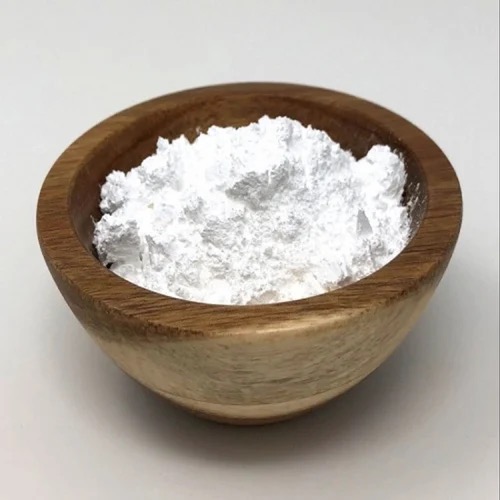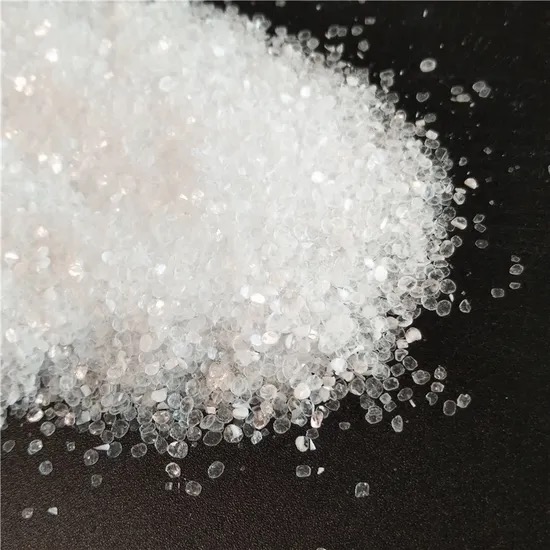Views: 222 Author: Sara Publish Time: 2025-08-07 Origin: Site








Content Menu
● What Are Artificial Sweeteners?
● How Artificial Sweeteners Interact with the Digestive System
>> 1. Impact on Gut Microbiota
>> 2. Influence on Intestinal Barrier and Inflammation
>> 3. Fermentation and Osmotic Effects of Sugar Alcohols
>> 4. Effect on Gastrointestinal Motility
● Do Artificial Sweeteners Cause Constipation?
● Natural vs. Artificial Sweeteners and Their Digestive Effects
● Application of Sweeteners in Food, Beverages, and Healthcare Products
● Practical Tips for Consumers
● FAQ
>> 1. Can all artificial sweeteners cause constipation?
>> 2. Is aspartame linked to constipation?
>> 3. Are natural sweeteners better for digestive health?
>> 4. How do artificial sweeteners affect the gut microbiome?
>> 5. Should people with IBS avoid artificial sweeteners?
Artificial sweeteners have become a significant part of modern diets worldwide, especially as concerns over sugar consumption rise. These substances provide a sweet taste without the calories and glycemic impact of traditional sugar, making them appealing for diabetics, weight-conscious individuals, and manufacturers aiming to produce "healthier" products. Their application spans the food, beverage, and pharmaceutical industries, including functional foods and healthcare supplements.
However, despite their benefits, questions have surfaced regarding potential side effects, particularly their impact on the digestive system. One common concern is whether artificial sweeteners cause constipation. Constipation can be a distressing condition, affecting quality of life, and determining whether widely used additives contribute to it is essential for consumers and manufacturers alike.
This article offers a comprehensive look at artificial sweeteners and their connection with constipation. It covers the types of artificial sweeteners, their mechanisms of action in the digestive tract, relevant studies, and practical considerations for consumers and industry stakeholders.

Artificial sweeteners are synthetic or naturally derived substances that provide sweetness with little to no calories. The most common examples include:
- Aspartame: A low-calorie sweetener commonly found in diet sodas and sugar-free gums.
- Sucralose: Known for its stability under heat, widely used in baked goods and beverages.
- Saccharin: One of the oldest artificial sweeteners, used in various low-calorie products.
- Neotame: Similar to aspartame but much sweeter and more heat-stable.
- Acesulfame K: Often blended with other sweeteners to enhance sweetness.
In addition to these, sugar alcohols or polyols such as erythritol, xylitol, sorbitol, and mannitol are often included in "sugar-free" or reduced-sugar products. Though naturally occurring, these polyols are sometimes grouped with artificial sweeteners because of their industrial uses and digestive effects.
Understanding whether artificial sweeteners cause constipation requires exploring how they affect the gastrointestinal tract:
The human gut hosts trillions of bacteria essential for digestion, immune function, and overall health. Artificial sweeteners have been shown in some studies to alter the gut microbial balance, sometimes reducing beneficial bacteria and allowing overgrowth of less favorable species. This dysbiosis can affect bowel regularity, potentially contributing to symptoms such as constipation or diarrhea.
However, the extent to which these changes translate into chronic constipation is still under investigation. Effects seem highly individualized, influenced by the sweetener type, dosage, and person's existing gut microbiome composition.
The intestinal lining serves as a critical barrier preventing harmful substances from entering the bloodstream. Some experimental data suggest artificial sweeteners may disrupt this barrier, increasing intestinal permeability ("leaky gut"). This can promote low-grade intestinal inflammation, which may interfere with normal bowel movements.
Though such disruptions have been noted especially with neotame and high doses of other sweeteners, the evidence primarily arises from animal models or in vitro studies. Human clinical data remain limited.
Sugar alcohols like sorbitol and xylitol are not completely absorbed in the small intestine and pass into the colon, where gut bacteria ferment them. This fermentation produces gases, bloating, and alters water retention in the colon. Depending on individual tolerance and amount consumed, sugar alcohols can lead to either diarrhea (due to increased osmotic pressure pulling water into the colon) or constipation (if motility slows due to discomfort or inflammation).
Erythritol, as a smaller molecule, tends to be better absorbed and causes fewer digestive issues, but excessive intake may still cause mild gastrointestinal discomfort.
Motility—the movement of food and waste through the gut—is regulated by neurotransmitters and hormones, including serotonin and incretins. Some preliminary studies show artificial sweeteners can influence the secretion of these substances, potentially slowing or accelerating gut transit time. Altered motility can translate into constipation or diarrhea. However, more robust clinical studies are needed to confirm this mechanism.

Based on current scientific evidence, the relationship between artificial sweeteners and constipation is complex and not definitively established.
- Most artificial sweeteners like aspartame, saccharin, and sucralose have not been clearly linked to causing constipation.
- Some artificial sweeteners, including neotame, have raised concerns in experimental studies regarding their potential to disrupt intestinal health, but conclusive evidence in humans is lacking.
- Sugar alcohols are the most commonly reported sweeteners causing digestive symptoms including constipation, especially when consumed in large quantities or by sensitive individuals.
- Individual digestive responses can vary widely based on genetics, gut microbiota, overall diet, and existing gastrointestinal conditions.
Moderate consumption of artificial sweeteners is generally considered safe for most people, but those experiencing constipation or other gastrointestinal symptoms should monitor their intake and consider reducing or switching sweetener types.
Many consumers prefer natural sweeteners like stevia, monk fruit, and erythritol, perceiving them as "healthier" or gentler on the digestive system. While erythritol does belong to the sugar alcohol family, it tends to be well tolerated even at higher doses compared to other polyols.
Natural sweeteners often have fewer documented adverse digestive effects but are not completely free from potential side effects. For example, stevia extracts may occasionally cause mild gastrointestinal upset in sensitive individuals.
Choosing between natural and artificial sweeteners depends on individual tolerance, product formulation, and intended use.
Artificial sweeteners and functional polyols play a crucial role in developing reduced-calorie, health-oriented products. Their benefits include:
- Masking bitterness in pharmaceutical tablets and syrups, enhancing patient compliance.
- Reducing calories and managing blood sugar levels in foods and drinks.
- Facilitating the development of fiber-infused, functional snacks and supplements that support better health.
Manufacturers must balance functionality with potential digestive impacts when selecting sweeteners for formulations. Consumer education regarding moderate intake can minimize adverse effects like constipation or bloating.
- Start with low intake of artificial or sugar alcohol sweeteners and gradually increase to assess tolerance.
- Stay hydrated and maintain good dietary fiber intake to counteract potential constipation risks.
- Pay attention to product labels to identify types and amounts of sweeteners.
- Consult healthcare professionals if digestive symptoms persist.
Although artificial sweeteners can influence gut microbiota and intestinal function, direct scientific evidence linking most artificial sweeteners to constipation remains inconclusive. Sugar alcohols, a unique category of sweeteners, are more commonly associated with digestive disturbances, including constipation, particularly when consumed excessively.
Individual response varies widely, and moderation remains key. For manufacturers developing health-focused foods, beverages, or healthcare solutions, understanding the nuances of sweetener effects on gut health is critical. Future research will hopefully clarify mechanisms and help tailor sweetener use to maximize benefits while minimizing gastrointestinal side effects.

No, not all artificial sweeteners cause constipation. Effects depend on the sweetener type and individual sensitivity. Sugar alcohols like sorbitol and xylitol are more likely to cause constipation or diarrhea in some people. Others like aspartame rarely cause constipation.
Currently, there is no direct scientific evidence that aspartame causes constipation. Some studies indicate it might alter gut bacteria, but clinical implications regarding bowel movements are unclear.
Natural sweeteners such as erythritol are generally better tolerated with fewer digestive side effects. However, excessive consumption can still cause discomfort. Individual tolerance varies.
Artificial sweeteners can change the composition and activity of gut bacteria, potentially impacting gut health and digestion. Alterations in microbiota may contribute to symptoms, but this varies by sweetener and person.
People with irritable bowel syndrome often have increased sensitivity to fermentable sugars and sweeteners, particularly sugar alcohols. Avoiding or limiting these sweeteners may help reduce symptoms like constipation or diarrhea.
Top Nutritional Supplement Manufacturers And Suppliers in Indonesia
Top Nutritional Supplement Manufacturers And Suppliers in India
Top Nutritional Supplement Manufacturers And Suppliers in Germany
Top Nutritional Supplement Manufacturers And Suppliers in France
Top Nutritional Supplement Manufacturers And Suppliers in Canada
